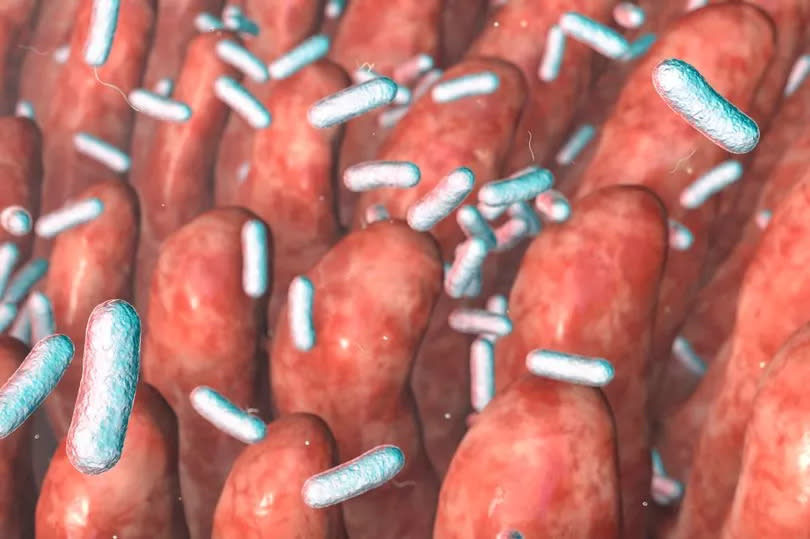Holidaymakers warned as drug-resistant illness hits five European Union hotspots

An alert has been issued after an outbreak of serious stomach illness which is resistant to many drugs including antibiotics in five European Union countries. The European Centre for Disease Prevention and Control today said it is investigating a serious number of cases of dangerous and highly infectious shigella sonnei infection, which is also sometimes referred to as dysentery.
The ECDC said it has been detected in Belgium, Germany, Ireland, Denmark the Netherlands. Officials said it may have originated at the Darklands festival in Belgium, with strains resistant to many commonly used antimicrobial agents detected.
In a new information release this week, the ECDC said this month Belgium reported an increase in extensively drug-resistant (XDR) Shigella sonnei infections with a total of 31 cases since January 2024. Of these cases, 27 are male and one of them had participated in a Darklands festival which took place in Antwerp, Belgium, between 27 February to 4 March 2024.
Since the festival cases were reported in Germany, Ireland, and the Netherlands. In addition, Denmark reported one case with travel history to Belgium before 11 March. The main symptoms of the disease include fever, severe diarrhoea and stomach pain.
There are 2 main types of dysentery:
bacillary dysentery or shigellosis, which is caused by shigella bacteria; this is the most common type of dysentery in the UK
amoebic dysentery or amoebiasis, which is caused by an amoeba (single-celled parasite) called Entamoeba histolytica, which is mainly found in tropical areas; this type of dysentery is usually picked up abroad
The ECDC said it believes the Darklands gbMSM (Gay, bisexual and other men-who-have-sex-with-men) festival has led to the illness becoming wider spread and added: “Sequencing results for the case in Belgium related to the Darklands festival indicate the same XDR Shigella strain that has previously been reported among gbMSM in several EU-EEA countries, a cross-country transmission event that started at the end of 2022.
“One of the two cases identified in Ireland, who reported attendance at the Darklands festival in Belgium in the days prior to symptom onset, has a different sequencing profile. However, it shows multidrug resistance to commonly used antimicrobial agents. Seven cases of Shigella infections have been reported with a link to the Darklands festival in Antwerp, Belgium or that travelled to Belgium before onset. The event shows the potential or transmission ‘hot spots’ in mass gathering events attended by gbMSM.
“As Shigella is transmitted faecal-orally and can also spread through sexual contacts, individuals who engage in sexual encounters with multiple anonymous or casual sex partners while attending such events may face an elevated risk of infection. Given the low infectious dose, further spread from infected persons to sexual partners, and household contacts in their home countries is likely upon their return.
“The incubation period for Shigella infection varies from 12 hours to four days; however, it is usually one to seven days.” It added that worryingly there is an evolving cluster of XDR shigellosis spreading across several countries in the EU/EEA showing extensive drug resistance.
It added: “Further cases of this strain are very likely to occur, particularly among gbMSM, not only in countries reporting cases but also in other Member States, given the interconnected nature of gbMSM sexual networks in Europe. It is also likely that other cases that have not yet been detected may already be present in other Member States.”
How you can avoid passing on dysentery
Handwashing is the most important way to stop the spread of infection. You’re infectious to other people while you’re ill and have symptoms.
Take the following steps to avoid passing the illness on to others:
Wash your hands thoroughly with soap and water after going to the toilet. Read more about how to wash your hands
Stay away from work or school until you’ve been completely free from any symptoms for at least 48 hours.
Help young children to wash their hands properly.
Do not prepare food for others until you’ve been free of symptoms for at least 48 hours.
Do not go swimming until you’ve been free of symptoms for at least 48 hours.
Where possible, stay away from other people until your symptoms have stopped.
Wash all dirty clothes, bedding and towels on the hottest cycle of your washing machine.
Clean toilet seats and toilet bowls, flush handles, taps and sinks with detergent and hot water after use, followed by a household disinfectant.
Avoid sexual contact until you’ve been free of symptoms for at least 48 hours.

 Yahoo News
Yahoo News 
